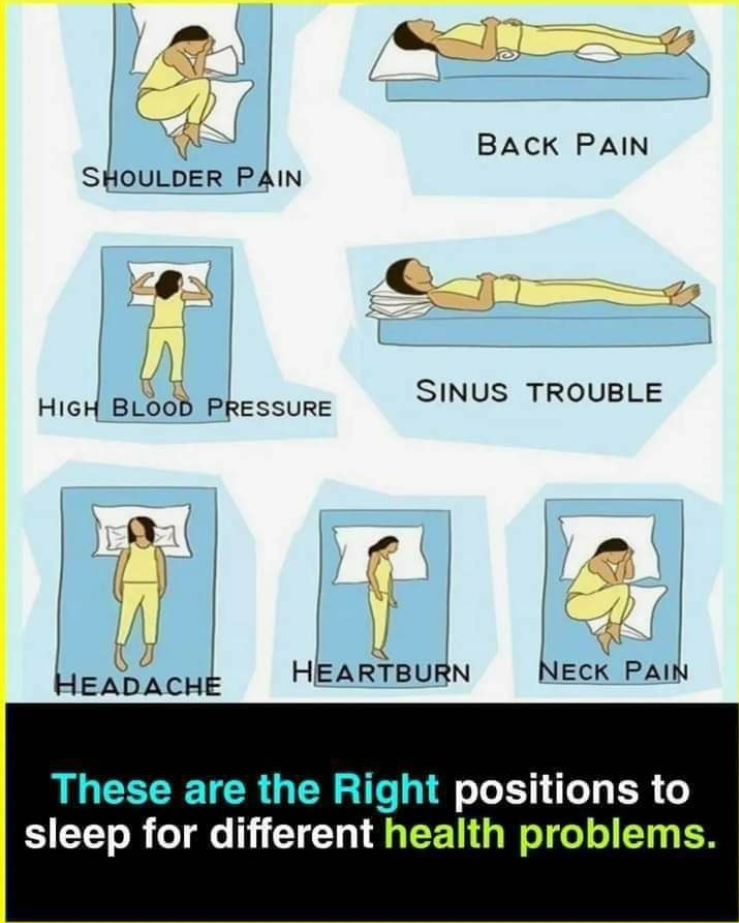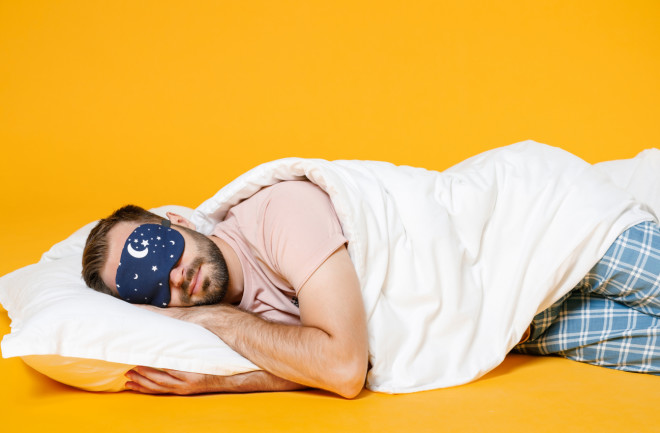Scientists demonstrate how altering your sleeping posture can help you manage common health problems.
If you love to sleep, you’ll be happy to know that you may use that time to treat and prevent a variety of health problems. Our bodies require this time to recharge, rest, and gain vigor for the next day.
Our lives can be significantly impacted by the quality of the sleep we receive each night, which is why it is so important.
We regrettably live in a sleep-deprived society, and while if the majority of us rarely receive the appropriate amount of sleep because of stress or too much work, many other people worldwide also experience sleep issues.
But according to scientists, there are no unsolvable sleep issues. Most of the time, the adjustments we need to make are quick and uncomplicated, such as modifying the temperature in the room, the pillow, or the posture in which we sleep.
Here are some of the health problems we most frequently experience as a result of sleeping in the incorrect position, and how to treat them:
Shoulder Pain
If you experience shoulder pain when you wake up, avoid sleeping on your side. Sleep with a small pillow under the hurting shoulder while on your back. Hug a cushion as well to maintain the proper posture of your shoulder.
Neck Pain
Your neck pain can indicate that you should switch pillows. Ideally, you should replace your pillows every two years. The most comfortable ones, according to many, are those made of latex.
Find out more about: 5 Situations In Which It Is Best To Skip Training
Back Pain
The best sleeping positions for those with back discomfort are as follows:
- Back: If you prefer to sleep on your back, tuck a small, rolled towel beneath your lower back and a cushion under your knees.
- Side: People who sleep on their sides should put a pillow between their legs and slightly raise their knees.
- Stomach: If you like to sleep on your stomach but have back pain, place a pillow under your pelvis and lower abdomen.
Trouble falling asleep
You may have trouble falling asleep at night for a variety of reasons, including stress, a large meal the night before, unfavorable sleeping environment, and more. In this scenario, be sure to take the following advice into account:
- Create a bedtime routine that includes activities such as reading a book, turning off all the screens in the bedroom, drinking a cup of relaxing tea, etc.
- Avoid drinking coffee in the afternoon.
- Morning exercise is preferable to nighttime exercise.
Inability to stay asleep
You should think about making the following adjustments because many things can make it difficult for you to fall asleep:
Don’t drink alcohol before bedtime
The recommended sleeping temperature is between 60 degrees Fahrenheit (15.5 degrees Celsius) and 70 degrees Fahrenheit (21 degrees Celsius), so make sure the bedroom is not too warm.
Inability to wake up
If you simply can’t get out of bed in the morning, there is a straightforward method that can help. The difference between work and leisure time, or social and biological time, is referred to by scientists as “social jetlag.” Setting the alarm for the same time every day, including on the weekends, will train your body to wake up at that time.
Acid Reflux
Sleep with your head up or on your left side to place your stomach below your esophagus, which will lessen the discomfort of acid reflux during the night.
Snoring
Alcohol use, drug use, smoking, body weight, and nasal congestion can all contribute to snoring. Try to avoid sleeping on your back and elevate your torso with an additional pillow if you must.
Leg Cramps
Leg cramps in the middle of the night can be extremely uncomfortable, and many times they are just the result of tension or dehydration. So, if you ever encounter them, force yourself to walk, wiggle and massage your leg, or stretch your calf muscle.
You should limit your intake of alcohol and caffeine and drink lots of water throughout the day to avoid getting them in the first place. Use pillows to keep your toes pointed upward if you sleep on your back. Leave them off the end of the bed if you sleep on your stomach.
As sleep is essential to our health, if you experience sleeping difficulties, you should first identify the reason and then take steps to solve it.




